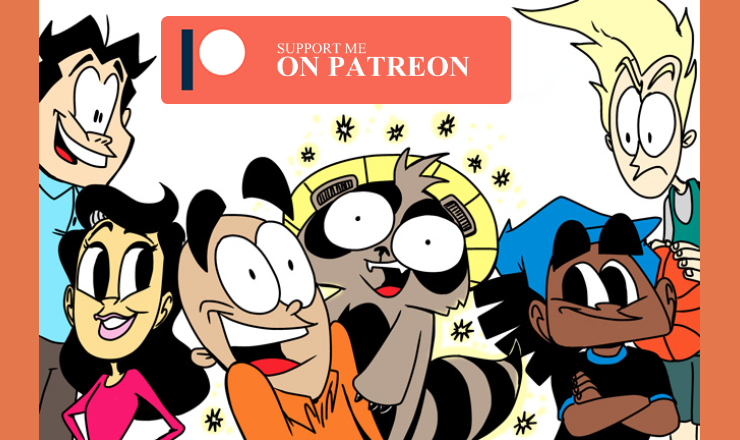Don’t Feel Bad About Not Starting Your Side Hustle
/Why living through a pandemic is the right reason to slow down.
Photo by Aleksandra Sapozhnikova on Unsplash
I believe in working a job and having another money-making venture on the side, but it’s not always as easy as people make it seem.
If you’ve survived the Covid pandemic, stop and look at what you’ve accomplished. Do you have a job paying the bills right now? Congratulations! You’re much better off than most people.
Are you physically healthy and in decent shape? Another win.
Even though it’s hard to hear, you’re most likely emotionally and mentally damaged after surviving a worldwide pandemic. Hearing about people dying every day, maybe even family members, and doing what you can to keep the virus at bay and, at the same time, food on the table takes herculean effort.
Adding a side business to all of that takes serious consideration after everything we’ve been through in the world.
What do you want out of life?
The unprecedented times we’ve lived through have now become precedented times. Fortunately, because of vaccines and people being more willing to take them, life improves steadily.
Let’s hope we can gradually move back to some semblance of normalcy in the next few years. As a teacher, writer, and cartoonist, I’m choosing to build up my writing and drawing skills with the awareness it can be easy to crash and burn if I do too much.
You have to decide what you can handle in your specific circumstances right now, which might not include—let’s be honest—more work.
What would you get out of your side hustle?
Your “why” should be about more than money. Even if you’re in bad financial shape and need to make some dough to catch up on bills, you should have meaningful goals attached to it as well.
Freelance writing is an easy example. You can make money writing for clients doing blog posts, case studies, and copywriting. Freelancing has its challenges, but you’re growing and improving as a writer.
I loved freelance writing as my side hustle pre-pandemic while teaching Art full-time. Finding jobs on Upwork was tricky at first, but I figured it out and smiled my way through icky clients. But I also had fun with wonderful ones, learning more about business writing, and growing a more impressive writing portfolio.
One of my goals was to eventually transition from teaching into copywriting for a tech company or full-time freelancing. Accepting that desire helped me keep going when I was tired or didn’t feel like writing after work. Three years of side hustling went by, and recruiters started taking notice of my case studies on Linkedin. I was able to move into a position as a copywriter for a tech company.
I learned a lot from experience over almost two years until the pandemic hit. The company let me go, and I was unemployed for a few months and moved back to teaching. Learning to teach from home was a huge challenge and took a ton out of me.
All of us had to learn to work differently. Doing your job remotely from home is a dream for others and a nightmare for some. I had my daughter at home and had to help with her remote schooling while attempting to keep up with my teaching.
It was hard. I barely made it through, but I get to decide how to proceed, and so do you.
“The action you take today will secure your tomorrow and have its repercussions. The pandemic will frizzle out and get over someday shortly, but the survivors remain. And remember we aim now at ‘safeguarding lives’ and ‘safeguarding livelihood’.”
― Henrietta Newton Martin , Legal Advisor & Author
Can you do it without killing yourself?
I burned out from working too much during a pandemic while balancing parenting. It wasn’t like before when all I had to think about was how early to wake up to write and draw and make sure to rest on the weekends. Pandemic life changed me, and I had to take parts of my busy life off my plate to survive.
Post pandemic, side hustling looks different. Your other jobs or extra business might take a toll you don’t expect and hit you with health problems. Is it worth it?
If your side hustle happens to be something you’re passionate about, like acting or drawing, working for clients forces you to do something in that area you usually wouldn’t. This can be a good thing.
We all have certain parts of what we love we’re afraid to try. A business you’re working for will pull you out of your comfort zone, requiring you to do things you’ve been avoiding. You can learn to face discomfort.
Scary, but necessary if you want to grow. What if you feel like you don't have the capacity and are not ready to take on more? Should you put on Gary Vee podcasts yelling at you to get your hustle on? Maybe, just like most humans, he’s wrong sometimes too.
The only one who can tell you what’s right for you right now is you.
About a year ago, I remembered a popular saying, “Give yourself some grace.” If you’re not ready to stretch yourself yet, let your side hustle goals go for now.
Growing in your chosen passion is essential, and I strongly believe in facing your fears to get better at what you love. But it will tire you out.
If what you’re looking to get out of a side hustle feels like an incredible weight combined with everything else right now, leave it alone. Taking time to recharge your batteries is most important.
When you know why you want to work outside of your job, you can better understand what you can handle. Eventually, you can start—or continue—your work on the side when you know you can go all in.
You don’t have to start now
The idea that there is never a better time than the present isn’t always true. Life can overload you, and trying to push through it all to become a side hustle success story isn’t always worth the effort. Believe it or not, there can and will be better times to start or continue a side hustle in the future.
Taking breaks and giving yourself time to heal physically and emotionally will help you reach success when you’re ready.
Slowing down to speed back up is essential. Running a marathon isn’t all sprinting, and it would help if you had time to coast a bit to burst back to being busy and successful.
Please understand that I believe in pursuing side hustles and have experienced their benefits.
More money to save and live a better life.
Learning and improving on valuable skills.
Opening up doors to new career opportunities.
You should definitely find and go for your side hustle—in time. Please make sure you’re thrilled about it inside and out.
If not, build up excitement by practicing the skills you would use in your side hustle as a hobby. Do it for fun. That’s what it should be, after all, anyway, right? When you can enjoy the process of writing, making, and creating, it gets easier to pursue it for a profit later.
Turning what you enjoy into a small business isn’t a walk in the park. When times are tough or not going the way you’d hoped, being able to do what you do for fun can keep you excited and motivated.
Even though I’ve actively sought out freelance work in the past, I’m enjoying writing on Medium and working on my unique voice at this point in my life. I’ve done some illustrations for a couple of clients this year but haven’t pushed hard for many more. It’s nice not having constant deadlines, and working when I want feels good for as long as I want.
Taking the time I needed to slow down helped me focus more on family and talking to a therapist for my mental health.
I can see myself freelancing consistently soon, but I’m in no rush. At least I’ve proven I can do it in the past, so getting back into side hustling with more gusto feels possible.
If you’re a super go-getter or afraid you won’t start, decide how long you’ll wait to begin side hustling. Give yourself a three months break.
Write down your plans to begin something in a year and mark it on your calendar. However long you think you’ll need to get back on track, have a goal of when you’ll start so you can look forward to it and mentally prepare.
The world and you have been through hell. Give yourself time and grace to build yourself up, and then hop on working your side hustle when you’re prepared.
Better times are ahead. Slow down and rest to work your side hustle at your best. You owe it to yourself, and your customers and clients will notice the difference.
Want more? If you’re struggling with doing original work, click here to join my (free) email list, and through comics, articles about culture, and living your truth, you can upgrade your mindset and share your art with the world.







